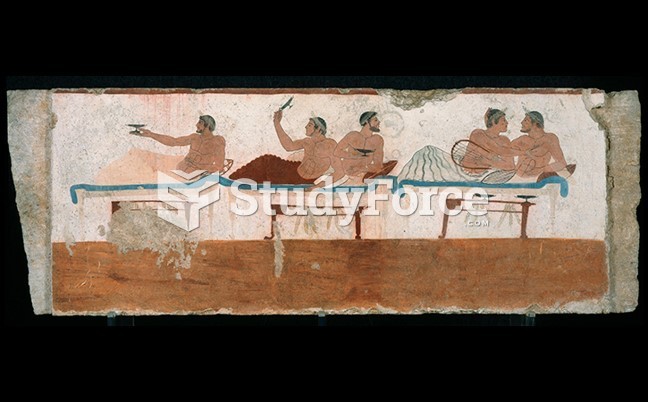|
|
|
Despite claims by manufacturers, the supplement known as Ginkgo biloba was shown in a study of more than 3,000 participants to be ineffective in reducing development of dementia and Alzheimer’s disease in older people.
Disorders that may affect pharmacodynamics include genetic mutations, malnutrition, thyrotoxicosis, myasthenia gravis, Parkinson's disease, and certain forms of insulin-resistant diabetes mellitus.
In most climates, 8 to 10 glasses of water per day is recommended for adults. The best indicator for adequate fluid intake is frequent, clear urination.
Bacteria have been found alive in a lake buried one half mile under ice in Antarctica.
Bacteria have flourished on the earth for over three billion years. They were the first life forms on the planet.
 Historian James Merrell notes several errors in Benjamin West’s famous 1771 painting, William Penn’s
Historian James Merrell notes several errors in Benjamin West’s famous 1771 painting, William Penn’s
 Utagawa Hiroshige, Hamamatsu: Winter Scene, plate 30 from The Fifty-Three Stations of the Tokaido, ...
Utagawa Hiroshige, Hamamatsu: Winter Scene, plate 30 from The Fifty-Three Stations of the Tokaido, ...





